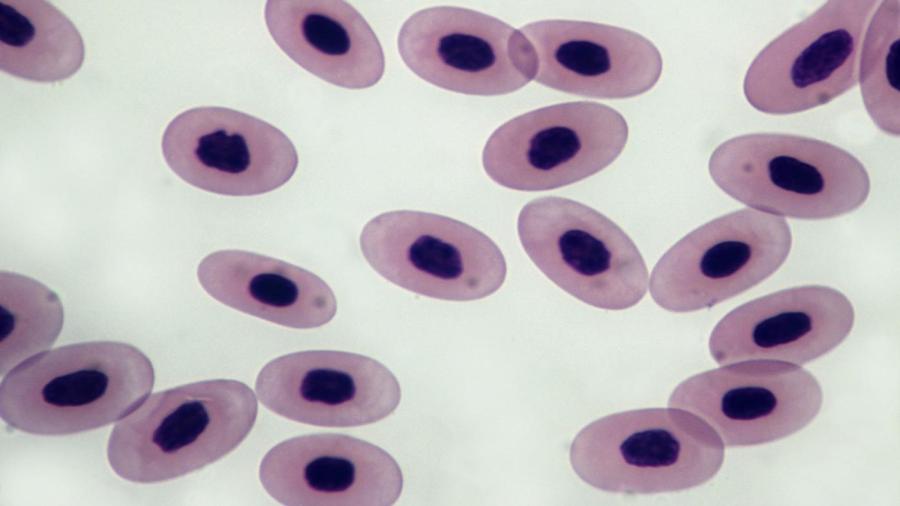How Do Eukaryotic Cells Divide

Cells divide for reproduction, replacement of lost or dead cells and to promote growth. Cell division is necessary for survival. There are two methods to reach prison cell division, known equally mitosis and meiosis.
Cell Reproduction
All living organisms experience cell division as a part of survival. This includes plants, animals, leaner and fungi. Reproduction is the oldest, and perhaps the simplest, reason cells divide. In reproductive fission, one cell typically grows larger than usual, duplicates its organelles and whatsoever internal structures, and and so divides into two most identical cells. Leaner, for instance, utilize binary fission for jail cell partition to reproduce and multiply. Among microbes, this procedure, which is referred to every bit mitosis, is one of the nearly mutual means for reproduction. In multicellular organisms, such every bit plants and animals, cells undergo a special class of cell sectionalisation known equally meiosis.
Replacement of Dead or Lost Cells
Plant and animal cells also divide for reasons related to the needs of the organism. When a pare cell is damaged, for example, the cells near the site of the damage often divide as a style of replacing the lost tissue. Through a serial of half dozen phases, mitosis takes on the important job of replacing these dead or lost cells. This is the repairing machinery for the tissues that need mending. Basically, an injury to tissue stimulates growth factors in an extracellular matrix (ECM). This ECM contains the necessary biological programming to perform the repairs. Kind of similar a offset assistance kit, the ECM uses h2o, essential minerals and compounds to assist in the healing process. One time the ECM takes over, the cell typically stops dividing. Nonetheless, sometimes over-exposure or genetics can cause this to go out of control, causing a mutation. A mutation in human bodies tin be acquired by external exposure to excess sunlight, pollution, cigarette smoke and other toxins. It can as well be caused internally by errors that happen within the DNA-copying process, which is sometimes based on genetics.
Growth Through Prison cell Division
Cell sectionalisation actually produces new cells for growth. Think of an athlete who breaks down muscle tissues and fibers through exercise. The tissues and cells repair and create new growth. Therefore, the muscles gain strength with new cells. This breakdown of tissue and replacement with new cells is office of a cell bicycle. The longer someone lives and the larger his or her size is, the more than cells he or she will have within his or her torso. Certain cells are in abiding growth mode, including skin cells. Because these skin cells are shed, they take to be replaced. As many as 50 million skin cells are shed daily, according to biologists. Other cells, including nerve and brain cells, practise not require every bit much jail cell division. A congenital-in command organisation within the body keeps this cellular growth in check. It knows when to make new cells and when to finish producing them. Occasionally, there is a glitch in the cellular-partition system. In the issue that a cell continually divides and makes more than is needed, cancer cells can develop, leading to affliction. The jail cell-division process has to keep a balance to remain good for you.
How Do Eukaryotic Cells Divide,
Source: https://www.reference.com/science/three-reasons-cells-divide-476b89095e5306f0?utm_content=params%3Ao%3D740005%26ad%3DdirN%26qo%3DserpIndex&ueid=701c3201-5a8a-4571-9173-0a3dcd04e9c9
Posted by: greenewheyes.blogspot.com


0 Response to "How Do Eukaryotic Cells Divide"
Post a Comment